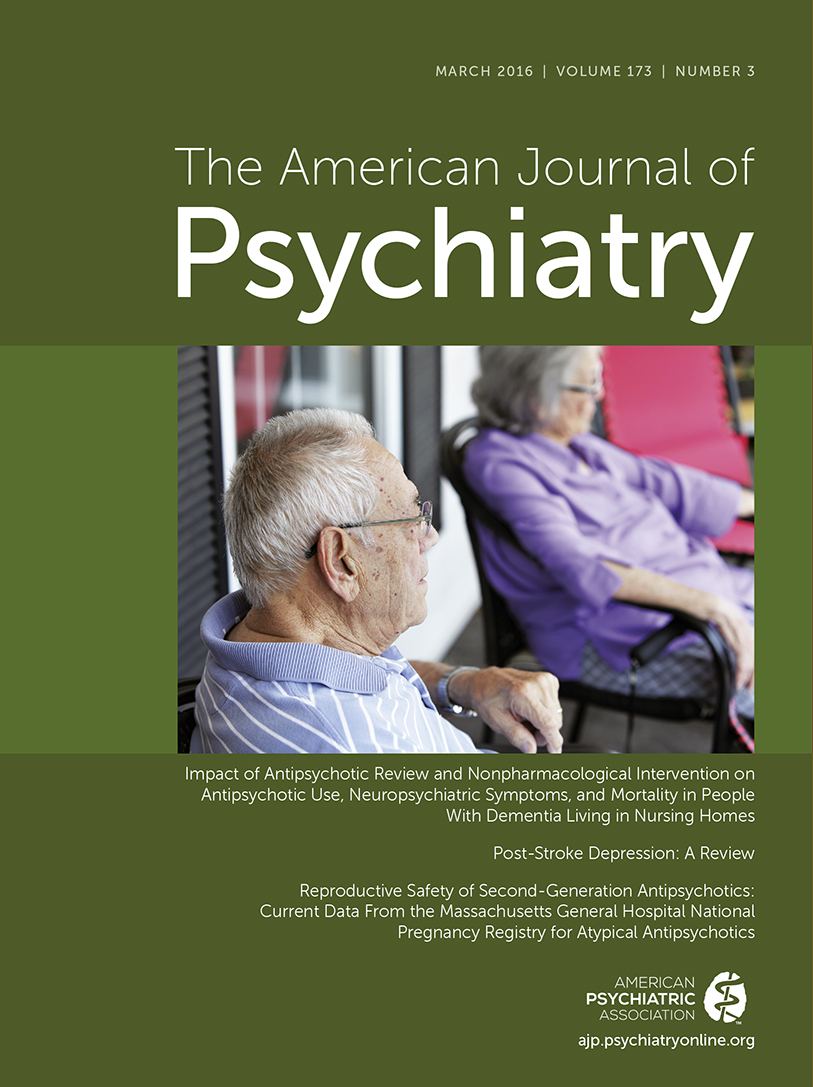Abstract
Objective:
This study evaluated the impact of antipsychotic review, social interaction, and exercise, in conjunction with person-centered care, on antipsychotic use, agitation, and depression in people with dementia living in nursing homes.
Method:
A cluster-randomized factorial controlled trial with two replications was conducted in people with dementia in 16 U.K. nursing homes. All homes received training in person-centered care. Eight homes were randomly assigned to antipsychotic review, to a social interaction intervention, and to an exercise intervention for 9 months, with most homes assigned to more than one intervention. The primary outcome measures were antipsychotic use, agitation, and depression. Secondary outcome measures were overall neuropsychiatric symptoms and mortality.
Results:
Antipsychotic review significantly reduced antipsychotic use by 50% (odds ratio 0.17, 95% confidence interval [CI] 0.05 to 0.60). Antipsychotic review plus the social interaction intervention significantly reduced mortality (odds ratio 0.26, 95% CI 0.13 to 0.51) compared with the group receiving neither. The group receiving antipsychotic review but not the social intervention showed significantly worse outcome in neuropsychiatric symptoms compared with the group receiving neither (score difference +7.37, 95% CI 1.53 to 13.22). This detrimental impact was mitigated by concurrent delivery of the social intervention (−0.44, CI −4.39 to 3.52). The exercise intervention significantly improved neuropsychiatric symptoms (−3.59, 95% CI −7.08 to −0.09) but not depression (−1.21, CI −4.35 to 1.93). None of the interventions had a significant impact specifically on agitation.
Conclusions:
While reductions in antipsychotic use can be achieved by using a “real world” intervention, this may not be of benefit to people with dementia in the current climate of more judicious prescribing unless nonpharmacological interventions such as social interaction or exercise are provided in parallel.



